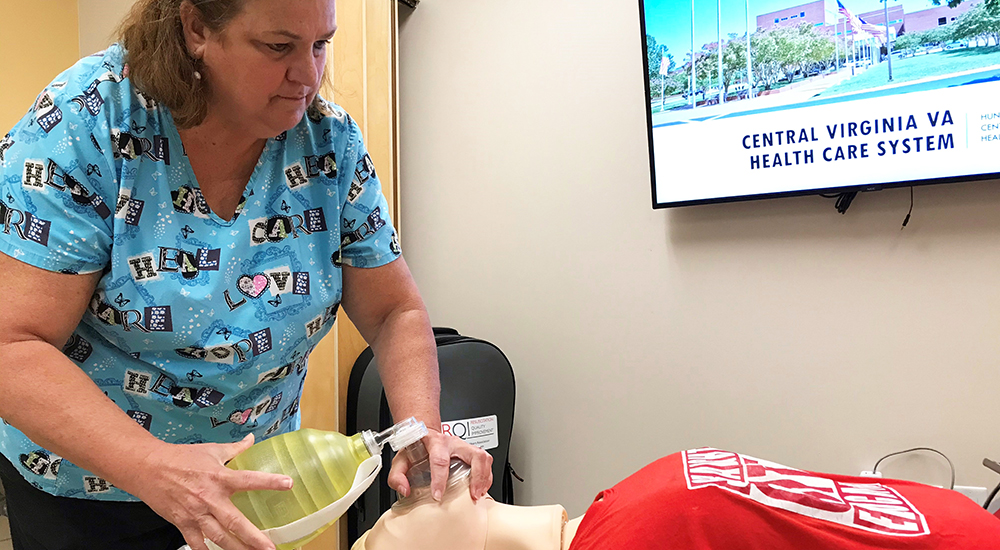More than 200,000 in-hospital cardiac arrests occur annually in the United States with survival rates at less than 26%. Clinical educators at Central Virginia VA Health Care System (CVHCS) know the value of keeping health care provider’s skills up to date.
The American Heart Association Resuscitation Quality Improvement (RQI) program provides hospitals and clinics with RQI training stations. There, clinicians can train without having to leave their clinical areas.
CVHCS was the first health care system in the Mid-Atlantic Health Care Network to implement the RQI program. The network also is known as VISN 6. It has 26 RQI stations throughout the health care system.
CVHCS has 2,410 clinicians training on the RQI stations. It also has 11,812 clinicians training in medical centers across the VISN.
Makes learning a seamless transition
In the photo above, Brenda French illustrates the functionality of an RQI station.
“We have significantly increased our use of RQI,” said French, the acting deputy associate chief of staff and education at CVHCS. “As a teaching facility, it helps to make learning a seamless transition from the academic to the clinical environment.”
VISN 6 became the first VA region in the country to migrate to the RQI program in 2016. Last year, RQI enhanced its program to RQI 2020.
“With the new RQI system, we have seen better results with CPR quality in simulation sessions,” said Jonathan Nguyen, simulation operations specialist in the education simulation center at CVHCS.
“In the past, some providers were only demonstrating these perishable skills every other year, and that’s not often enough. The RQI training has increased the frequency at which clinicians are trained and the duration of time it takes to train them to maintain proper skill retention.”
Mary Rasmussen, vice president of business development at RQI Partners, says that VISN 6 has trailblazed RQI implementation efforts, showing their dedication to improving patient care.
Megan Kon is a public affairs specialist with the Central Virginia VA Health Care System.
Topics in this story
More Stories
The Medical Foster Home program offers Veterans an alternative to nursing homes.
Watch the Under Secretary for Health and a panel of experts discuss VA Health Connect tele-emergency care.
The 2024 National Veteran Suicide Prevention Annual Report provides the foundation for VA’s suicide prevention programs and initiatives.






